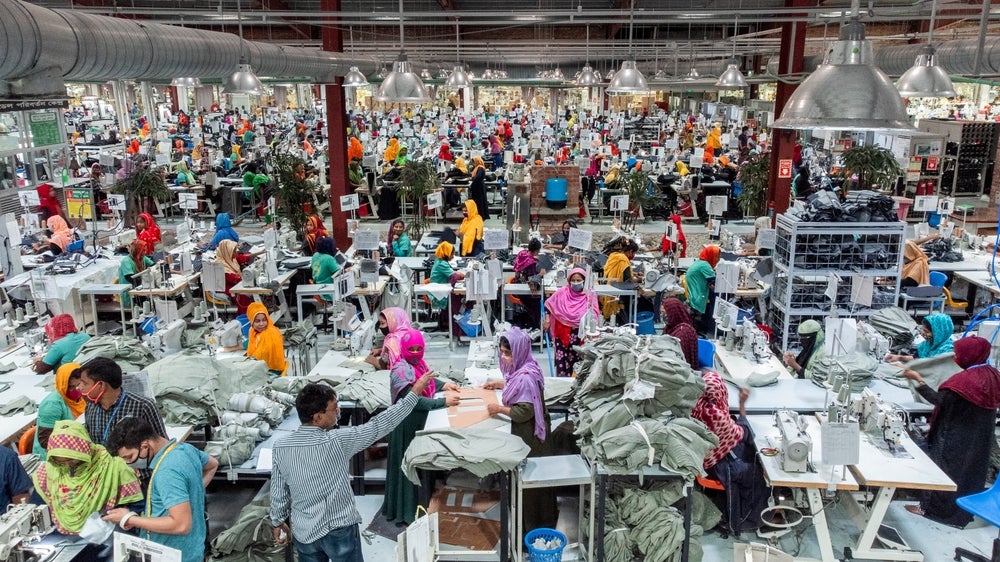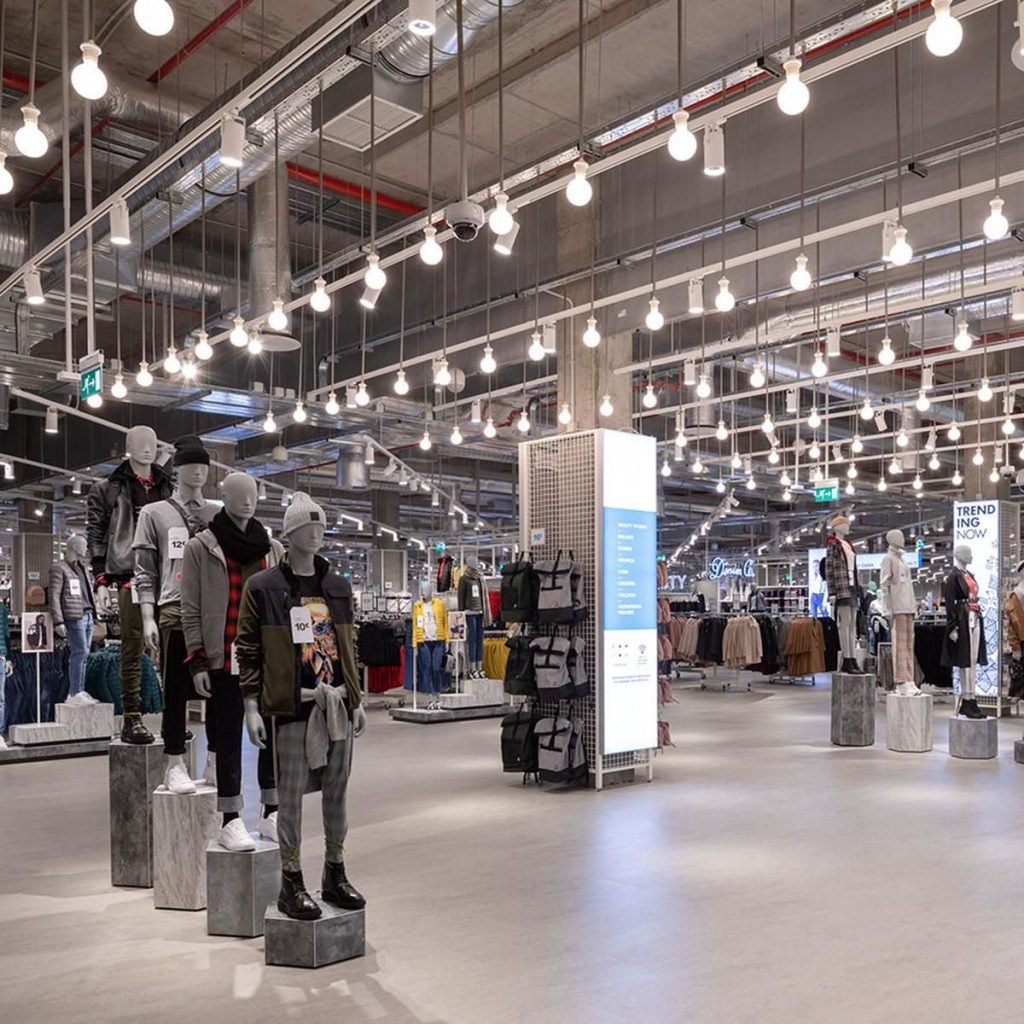With the UK election only 10 days away the apparel industry is keen on hearing positive measures to help boost the economy and be presented with unique opportunities to support the industry while simultaneously addressing pressing environmental concerns.
British Retail Consortium chief executive Helen Dickinson described UK retail as an “everywhere economy” and that with the right policy environment, can use its scale and reach to support public policy goals, she said following the publication of May’s UK retail sales.
These demands couldn't be more timely. With the recent collapse of Matches Fashion and the struggles faced by brands like The Vampire's Wife, it's clear that the UK apparel industry needs a lifeline.
On the sustainability front and future viability of the industry, Professor Dilys Williams of the Centre for Sustainable Fashion at the University of the Arts London at the parliamentary hearing on 3 May with the Environmental Audit Committee (EAC) called upon the government to support and incentivise the resale model to deal with the industry’s consumption and waste production.
Williams suggested a solution of consumption caps or taxes on the highest-polluting producers to stop the drive of “overstimulation” being presented to the British public.
France recently proposed an environmental tax on fast-fashion products – could the UK follow suit? Regulatory action may be the only way to force brands to take responsibility for their environmental impact.
But whilst the EU has approved legislation such as the Corporate Sustainability Due Diligence Directive (CSDDD), the Corporate Sustainability Reporting Directive (CSRD) and updated the Ecodesign for Sustainable Product Regulation (ESPR) the UK lacks direction on how to handle the growing fashion industry.
Under the current Conservative government, the apparel and luxury industries have been squeezed by Brexit and the removal of VAT-free shopping.
One crucial area where the next government could make an immediate impact is the restoration of tax-free shopping. The current policy is driving tourists to shop in Paris and Milan rather than London, potentially costing the UK economy billions in lost revenue.
Elsewhere, a common gripe among fashion brands is dwindling skills among the incoming cohort of designers and manufacturers. The Tory government's focus on STEM (science, technology, engineering and mathematics) education further exacerbates that concern. And it is a shift that comes at a time when budding designers are already grappling with financial hardships due to the ongoing cost of living crisis.
The next government must commit to bringing arts back into the curriculum and putting their efforts into Small and medium-sized enterprises (SMEs) which make up 99.9% of UK private sector businesses according to the international consulting firm, Leyton.
Williams said: “We haven’t seen anything around the true value and contribution of SMEs in this country since the pandemic which played a significant role in increasing the use of instant clothing.”
The UK's world-class creative industries risk a decline if mass market continues to be prioritised over SMEs, whilst proper support could help future-proof the industry.
Increased governmental support and investment into the UK's apparel industry, will enable it to rival established fashion powerhouses like France and Italy - without it, British fashion risks losing its competitive edge on the global stage.
Top stories on Just Style last week...
Explainer: Is Delta Apparel on the brink of bankruptcy?
Bankruptcy is a “very real possibility” for Delta Apparel, an industry expert has warned as product popularity wanes among consumers and the group moves to shutter factories.
Delta Apparel halts Honduras operation as cash flow woes intensify
US clothing brand Delta Apparel has announced plans to formally suspend its Honduras manufacturing operations and end its on-demand digital business citing ongoing liquidity challenges.
In data: Shein, Temu attract US shoppers with low prices, fast trends
A new survey suggests global and Chinese marketplaces such as Temu and Shein have become “go-to destinations” for US shoppers with GlobalData explaining consumers are being drawn to their inexpensive product offering and fast reaction to trends.
Explainer: Apparel sourcing majors accused of being worst for workers
Seven of the 10 worst countries for workers are popular garment sourcing destinations in Asia and Central America, according to a new report.
WHP Global's new retail operating platform to acquire Express, Inc.
A new joint venture led by WHP Global called Phoenix has received court approval to acquire the majority of US apparel retailer Express, Inc.'s operations after it filed for bankruptcy in April.
Retailer Aphrodite to close shortly after Frasers Group acquisition
Sunderland-based Aphrodite is closing just months after Frasers Group acquired the independent UK menswear retailer.
EU takes aim at greenwashing with tough new marketing rules
The European Council has adopted its negotiating position on a new Green Claims Directive aimed at addressing how companies substantiate and verify environmental marketing claims about products/services to help consumers make sustainable choices.
















